In the fall of 2015, Emily Kaufman decided to rush in hopes of joining a sorority at the University of Michigan. For a typical coed, this wouldn’t raise an eyebrow, but there was something that set Kaufman apart from the other female college students: she was transgender.
Kaufman was the first transgender woman to rush a sorority at the University of Michigan. Cosmopolitan.com discovered this when they found her popular Tumblr account, and writer Michelle Ruiz published a piece about transgender women joining sororities, which highlighted Kaufman’s story. In October 2016, Ruiz wrote a follow-up piece on Cosmopolitan.com when Kaufman was dropped from the sorority she was rushing.
But she didn’t let that stop her: Kaufman focused her energy on academics and becoming an activist. She helped change bathroom policies on campus to make life easier for trans students, she started the first all-inclusive LGBTQ organization at her university, and she joined the board of Point of Pride, a nonprofit organization founded by trans icon Aydian Dowling that helps transgender people afford surgeries and other transition-related costs.
Ruiz recently interviewed Kaufman again and published a lengthy piece just last month about what it was like to get gender confirmation surgery, also known as “bottom surgery.” Kaufman, now 22, says when she went into this life-altering surgery, she didn’t have enough information about what to expect. While she has received some backlash for being so vocal about her surgery, she says she’s glad she told her story so publicly so that other trans women are equipped with better information and more realistic expectations than she had.
Kaufman just graduated college and is getting ready to move from Ann Arbor, Michigan, to Washington, D.C. to intern for Democratic Senator Chris Coons, who represents Kaufman’s home state of Delaware. This is Kaufman’s story of transitioning from male to female, becoming an activist and published poet, and getting ready for a career in politics.
Profiles in Pride: When did you realize you were trans, and when did you start coming out?
Emily Kaufman: I came out to myself when I was 17. I hadn’t told anyone I knew in real life, though I had some sketchy online apps I was using to try to try to express myself, but basically, my senior year of high school, I realized who I was. I decided I didn’t want to live someone else’s life — the life that was expected of me by my parents and society. So I decided not to do that.
My senior year of high school, after I turned 18 that February, I came out to my parents. I had mentioned things to them over the years, so it wasn’t a huge shock, but they were surprised that I ended up following this path. It was very difficult. I was in a very bad place mentally for a long time while I was coming to terms with it. Then after I came out, my parents didn’t really want to talk about it.
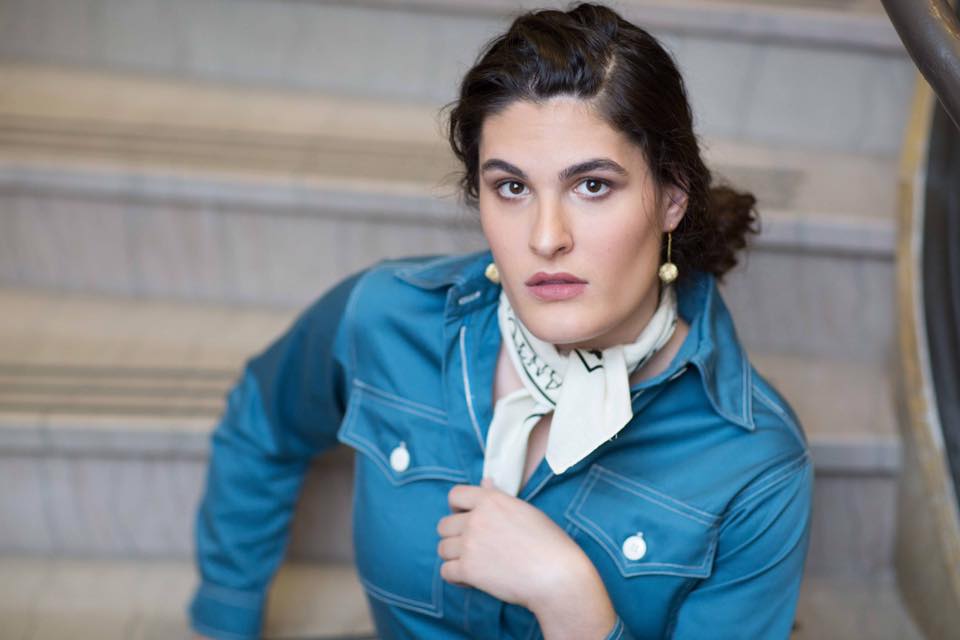
My plan was to transition in college. When I got to University of Michigan, I knew that I was going to start transitioning, but I didn’t know when, so I started coming out to people slowly. It was very difficult; I was very depressed and my grades plummeted. I’m really lucky that it happened at that point in my life, because if I was a year younger, it probably would have destroyed my grades and my chances of getting into the University of Michigan.
When I came to college in 2014, I lived in gender-inclusive housing, because I didn’t want to live with a cis guy and it be super weird. So I lived with a trans guy, and it was just kind of weird. Then I started hormones. I decided I was going to come back after winter break as Emily. I started hormones January of 2015, so it’s been close to three-and-a-half years.
PIP: For those of us who went to college before it existed, what is gender-inclusive housing?
EK: It was basically student housing for queer and trans people. It was mostly for trans people, but it was 50/50 trans and queer people. There were only 12 individuals the year I did it, my freshman year. It was half LGBQ and half T, but I was the only trans woman. It didn’t feel very inclusive for me.
Since then, it’s all trans people and there aren’t cis people anymore, but back then they needed to fill spots so that it wasn’t just three people. For example, across the hall from me, there was a gay guy and a bi woman who were a year above me, but I never really had that sense of community. I did a lot of things on my own. I did have some people help me, like my former therapist, and then we had a falling out, because she was very pushy about my transition. She was like, “You need to get electrolysis so you can pass,” so it was not a pleasant experience.
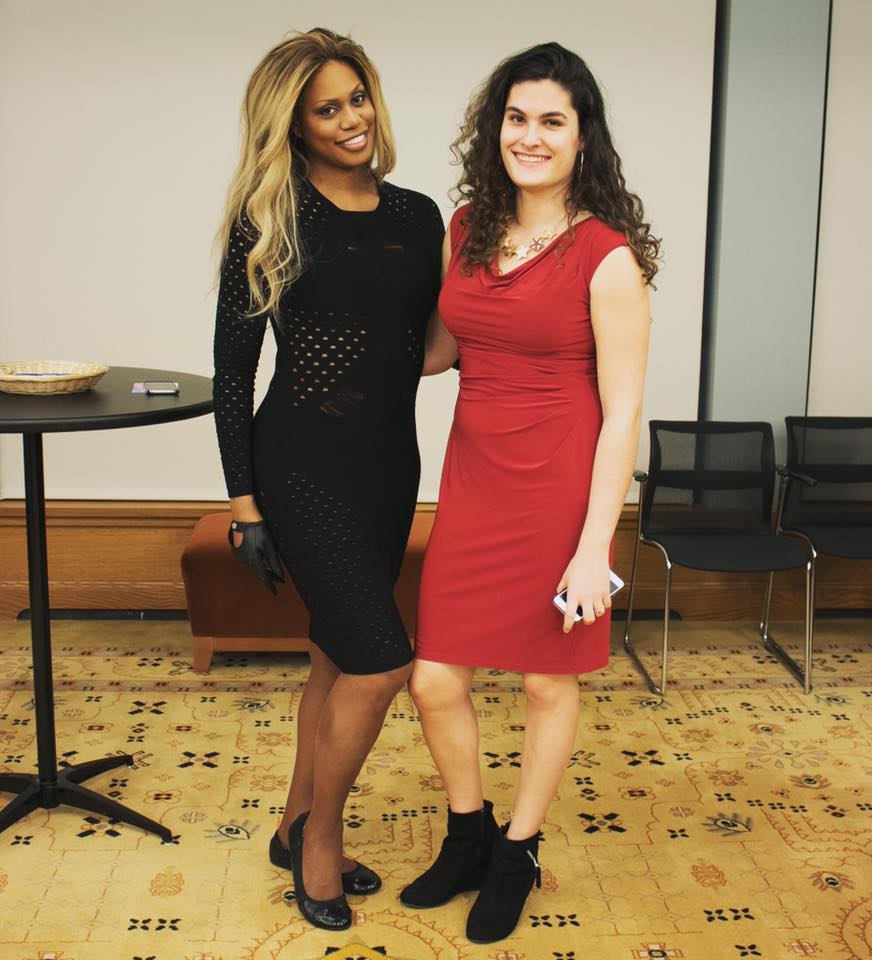
I didn’t meet another trans woman until I came to Michigan and went to this city support group outside of the school. That was really difficult, being alone. And there was only one other trans woman my freshman year, so I felt very isolated. But since then, I’ve made a lot of great friends online and I’ve helped a lot of the younger girls come to terms with it and through the early stages of transitioning.
I started doing activism because there was this trans speaker who was very self-conscious, and she didn’t think she was worth people respecting her. I was like, “Fuck no.” Then I realized, I need to do this so people know trans is fierce. So here we are.
PIP: What type of activism have you gotten involved in?
EK: I started doing it with the university; I worked with them to allow trans people to use whatever bathroom they wanted based on gender identity, not their school ID. I wasn’t allowed to use the women’s bathroom after transitioning, because my ID still said male and they had me as male in the system, so I was forced to use the gender inclusive bathroom. It was OK, but there was only one at first that we had exclusive access to, and then they changed it to two. But there were eight of us, and nobody else had to deal with that shit, and it was really aggravating and it felt very “othering.” Honestly, it took me years to feel comfortable in the women’s bathroom; I used to feel like people were staring at me.
I was also on this LGBT advocacy board through my university’s LGBT center. We didn’t end up doing that much, but we talked about a lot of things, and I think we set the groundwork for other people to do things. A lot of people didn’t show up, so I kind of dropped out, because I didn’t want to do it all myself.
I started the first umbrella LGBT student org at University of Michigan, because the only orgs that really did anything were Out Business School, Out Law, Out STEM — it wasn’t just for everyone. So that was pretty cool, and the org has really grown. The org, and therefore myself, won an award at the Lavender Graduation, the LGBT graduation. They’ve been doing those since 1995.
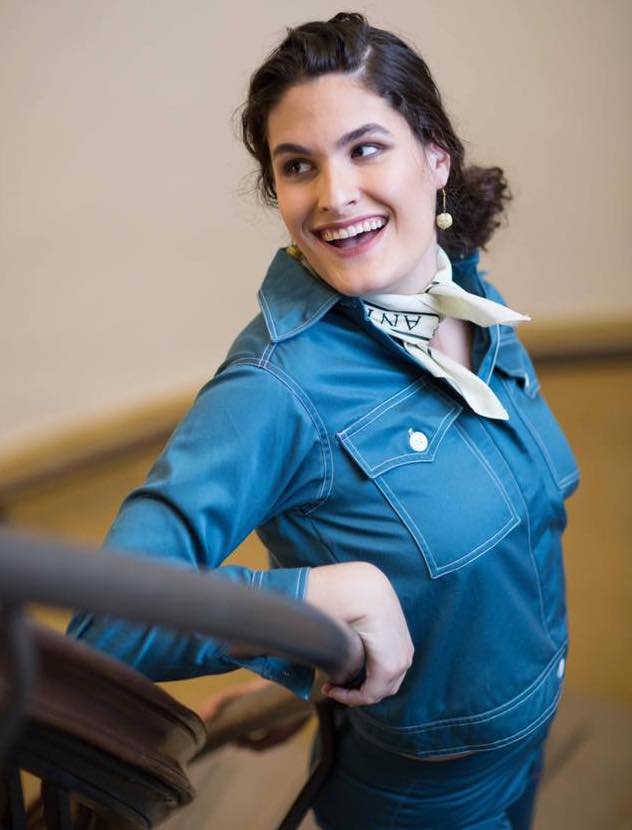
Then I sort of expanded the activism and started doing more stuff on a national stage. After going to the Philly Trans Wellness Conference, I was asked by Aydian Dowling to join his trans nonprofit called Point of Pride, which was meant to give money and services to trans people in need. For example, they have a surgery fund, a chest binder donation program, and an electrolysis program that I recently started. I was 20 when I was asked to join that, so this would have been after my sophomore year of college, so I was the last founding board member. I’ve been there since the beginning; I started months before we officially launched. It’s an interesting group, and it’s pretty cool to be in that.
PIP: Have you faced any challenges with transitioning?
EK: Me and my sisters out here are dealing with a lot of misogyny. I’m friends with a lot of people who were musical theater class of 2018. One night, they invited me to go out with them, and I went to pregame at some house. I was walking there, listening to Beyonce on my speaker. This guy walks up to me and I look at him, and he starts talking about Beyonce. Then he says, “Are you a woman? Are you transsexual?” I was like, goddammit. Because I don’t like getting clocked in those situations, because it goes from rape to murder real quick.
He was a little dude, but still…I didn’t know what to do. He was just talking to me, and then he wanted to touch my hands. I was like, OK, then he tried to hold my hand, and I said no. Then he wanted a hug goodbye, and I was like, OK, get the the fuck out of here, so I hug him. Then he kissed my boob and grabbed my ass. I’m peeling him off like a gross onion — no!
Then I told a couple of the guy friends what happened, and they were like, “Oh my God, are you OK?” I’m like, “This is my life, this is sort of what happens on a regular basis.” I think most people don’t know I’m trans. He did, evidently, but I think most people don’t, especially when they’re drunk. I was a year on hormones and there was this girl I was friends with in history class, and she had no idea I was trans, so it really depends. Some people can just tell and some people can’t. I’m only 5’ 8” and look pretty femme, so I guess people either don’t think about it or notice, but some people do. But it’s so bad how that’s sort of the ideal, to be passable. But also, you don’t feel like you’re a real woman unless you pass, which is another issue.
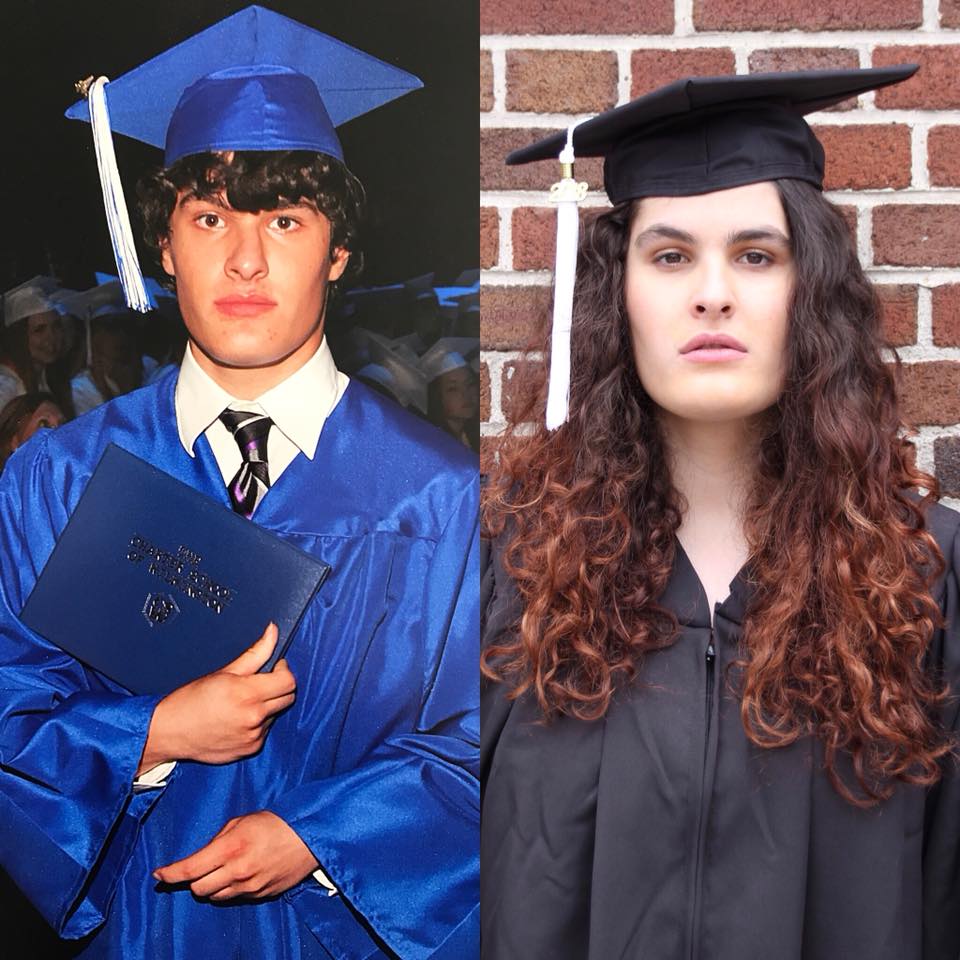
PIP: Absolutely. Now I’d love to hear about your poetry; I saw that you’ve had a book of your poetry published.
EK: My book is called “From Death to Life;” it’s poetry about my journey of transitioning. It’s mostly just taking you through the pain and the darkness that I felt, then to the light, which is why I called it that. It is available on Amazon. My mom is a graphic designer, and she made the cover.
PIP: Did the publisher find you, or did you reach out to them?
EK: A friend of mine got her poetry book published, and I was like, “I write poetry too!” I sent the publisher a manuscript, and they said they loved it, let’s do it! So I was listening to Justin Bieber’s newest album, it’s a nice chill vibe, and I had this candle in a glass, and I’d just listen to that and watch the candle to get in the mood and I just pumped out all these poems. If you write a book, my advice is to take it slow. I went too fast, and some of my poems are repetitive.
PIP: Tell me about the Cosmo article about your gender confirmation surgery. Why did you feel passionately about sharing your story?
EK: I remember for me, when I look back at who was there to help me, when I was really struggling, when I was coming to terms with it, and when I was in those first few months, I didn’t really have anyone consistent who was pushing me in the right direction. I didn’t have anyone who was there consistently until Philly Trans Health, where I met my friends Katie and Aydian and started having meaningful connections with trans people, but it wasn’t as much a mentor thing, it was just as friends.
But one of my friends, a trans woman, did show me her vagina a couple years ago, and seeing her vagina really helped me. I’d never seen one except in porn, because that was the best place trans girls were represented in the early 2010s. She said the pain was terrible, and I was like, oh, OK, but I didn’t really understand. I can be stubborn, and I did do a lot of research, but not enough. I didn’t know enough going in, so the day before, I had a little freak-out and felt sick and didn’t leave the house. Then I had the surgery the next day. I want to be upfront so that everyone is aware of what you’re going to go through so you don’t walk in not knowing and then have this sort of situation that I did.
I wanted to share these things because it hasn’t been shared. I think that something I’ve learned and something that Donald Trump has taught me — Donald Trump inspired me to go into politics, because I realized I have to be the change that I want. Along those lines, if there’s a story I think should be told that hasn’t been told, I should be the one to tell it. That’s my mentality around that.
And I know that some people are going to drag me down, which did happen. I thought it would be primarily from the trolls, like the haters, saying things like, “You’re a man.” I read that and I just laugh. But some trans women were coming at me because I’m a young, attractive woman who had the surgery in her early twenties. I’m just like, “Sorry, what do you want from me — do you want me to be 50 and write this story?” It was very interesting to me, because I didn’t expect that to happen from that community, from older, bitter trans women.
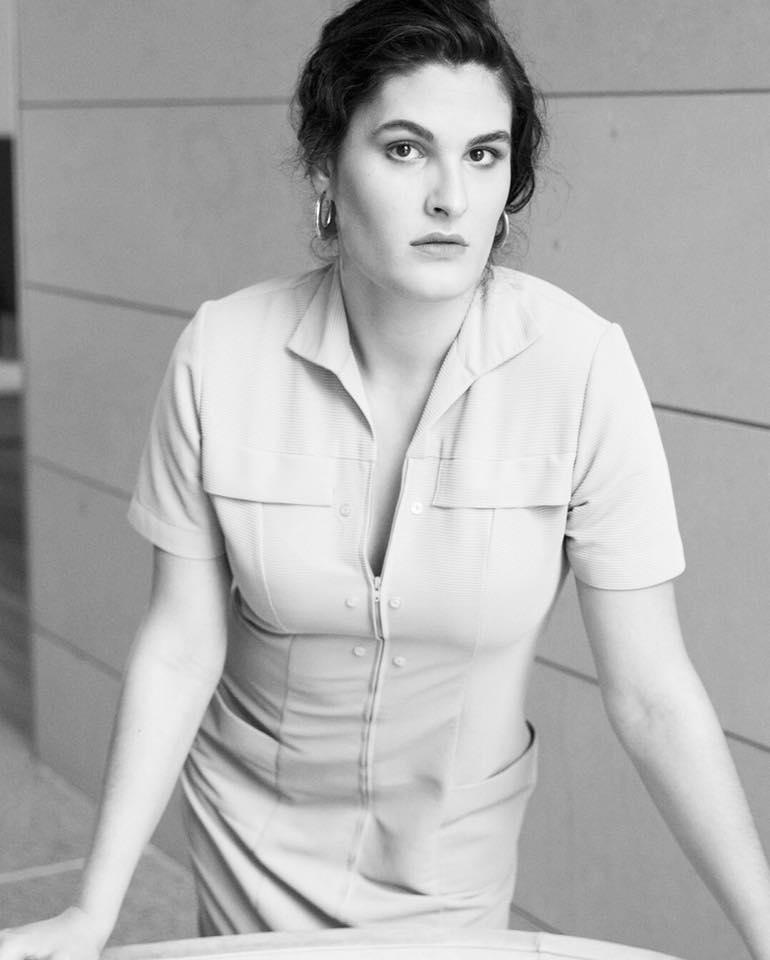
PIP: How did that article come about?
EK: It all started with the Cosmo story about my sorority rush in 2016. I stayed friends with Michelle, who wrote the article; we’re pretty close. I haven’t seen her in a couple years, but we’ve stayed in touch over the years. They really like me over at Cosmopolitan.com, and I was nice and I just kept up the relationship.
I talked to Michelle about wanting to do something like this, about the nonprofit or the surgery, and it kind of made sense to be a followup to the original two articles, like “how did it all turn out?” I think it’s definitely more impactful than the first two, because this will help people navigate their surgeries, and I’m excited for the potential opportunity for it to possibly expand into a book.
PIP: Tell us about your upcoming job working in D.C. and your future plans.
EK: I’m very excited about my job in D.C., because I want to go into politics. I’m going to go to law school after a couple of years of working in D.C. Honestly, getting this job is one of my greatest achievements, because they’re very competitive. I’m going to be interning for a senator and I’m getting paid. I’ll be answering constituent mail, giving tours of the Capitol, being a receptionist, sitting in legislation, and shadowing him.
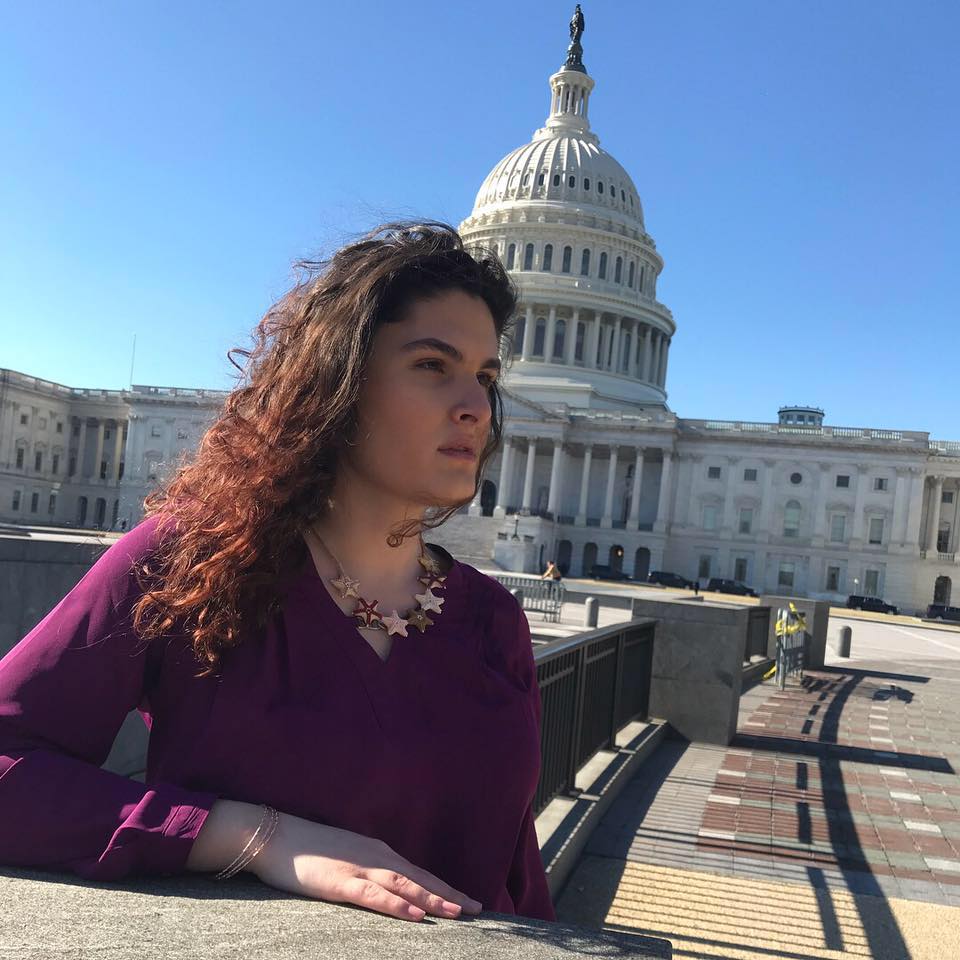
It’s going to be great; I’m really excited to get this inside look at how the government works. He’s a senator from Delaware, which is a big reason why I think I got it, because I’m from Delaware, and there aren’t many people with my resume from anywhere, especially Delaware. They give preference to people from the state, so I got this job, and I’m really excited. I start in June. I take the LSAT in Michigan, then exactly a week later I start my new job.
I want a law degree to prepare me for politics so I can understand things better and not be a buffoon like certain individuals that I will leave nameless. I would like to practice law for a few years, maybe coinciding with a state senate, state assembly type of thing since it’s a part-time job, so I could do that and then go onto full-time national level in 10 years or so.

